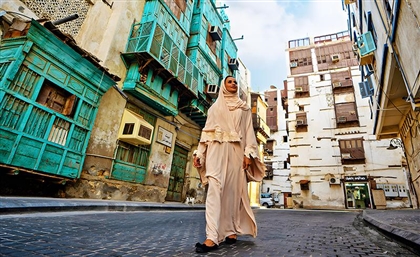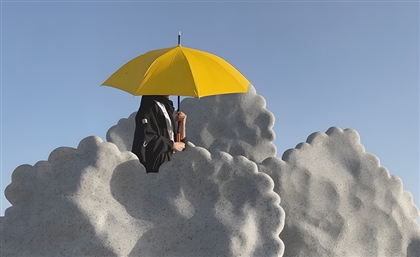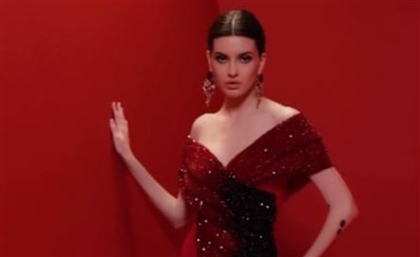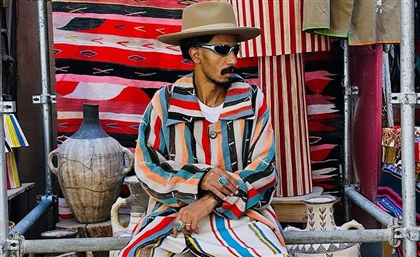Muslim Clerics Urge the Banning of Controversial Movie 'Mawlana'
The film, based on a novel by Ibrahim Eissa, is sparking strong condemnation from Muslim clerics, who consider its portrayal of religious preachers "misleading."
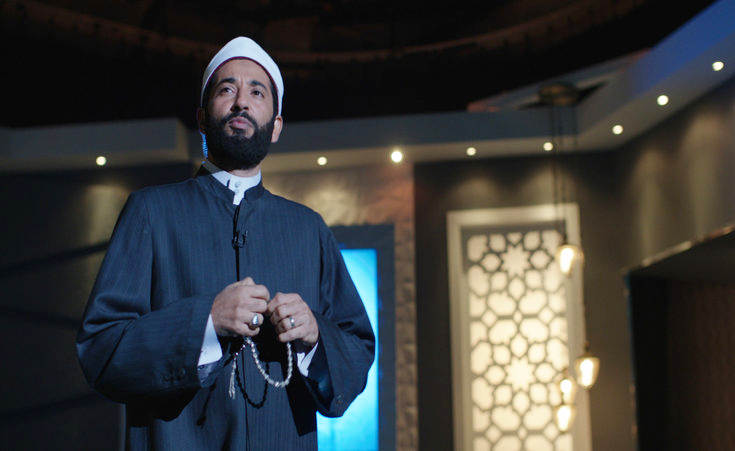
Various Muslim clerics and sheikhs across the religious spectrum - most notably Al Azhar clerics - have joined efforts to call for the banning of the movie Mawlana, which was released on Egyptian cinemas on January 4th, as they condemn the movie's 'misleading' portrayal of religious preachers as hypocritical and money-grabbing.
The movie, a film adaptation of the novel Mawlana (The Preacher) by Ibrahim Eissa, is viewed by some clerics as purposely exaggerating the role of the state security apparatus in order to damage Islam's - and the state's - image. Titled The Preacher, the film tackles the phenomena of 'satellite preachers', which became predominant on Egyptian satellite channels in recent years, allowing certain preachers who frequently appear as guests on talk shows to quickly rise to fame and influence thousands of young followers.
The movie is centered around the figure of Hatem El Shenawi - described as the most popular and highest-paid TV preacher in Egypt -, who is entrusted with preventing a relative of the president from converting to Christianity. The plot explores the methods by which state institutions manipulate influential religious preachers, to benefit institutional agendas as well as political authorities.
In Late November, the film was featured at the Dubai Film Festival and gained critical acclaim for its portrayal of Islamic preachers. But Muslim clerics reacted with strong condemnation. On Friday, an ultra-conservative Salafi group announced that it had filed a lawsuit in an attempt ban the movie. Similarly, Mansour, chief Imam at the ministry of religious Endowments, demanded the film be stopped from being shown before it "turns into a disaster," according to a Facebook post by Mandour, in which he addresses Egypt's top Islamic figures.
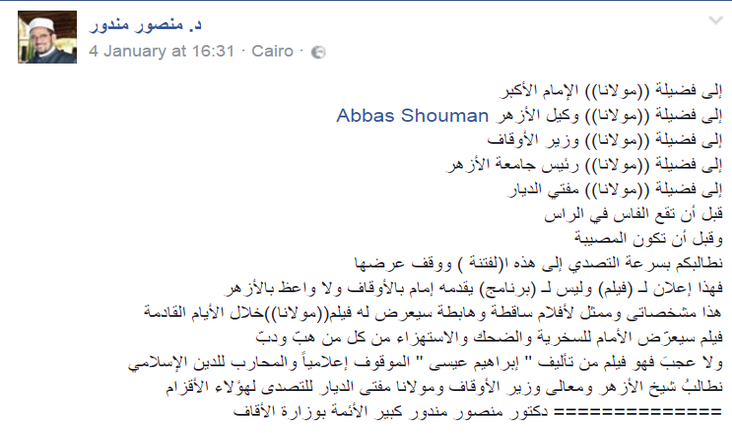
"Most remarks [by censorship authorities] were about the way I portrayed the various branches of the government. There were other remarks regarding the image of the sheikh in my film. Nevertheless, the censorship authority generally did not have any radical objections. Therefore, the film is shown commercially to audiences 12 years old or above," said the film's director Magdi Ahmad Ali, in an interview with Ahram Hebdo.
Despite various statements opposing the movie by Azhar scholars, no official statement was made by Al-Azhar condemning the movie.
- Previous Article Dr.Sisilove or How (Not) To Diffuse A Bomb
- Next Article Egypt Makes Pornhub's List of Countries with Most Frequent Searches for 'Mom'




